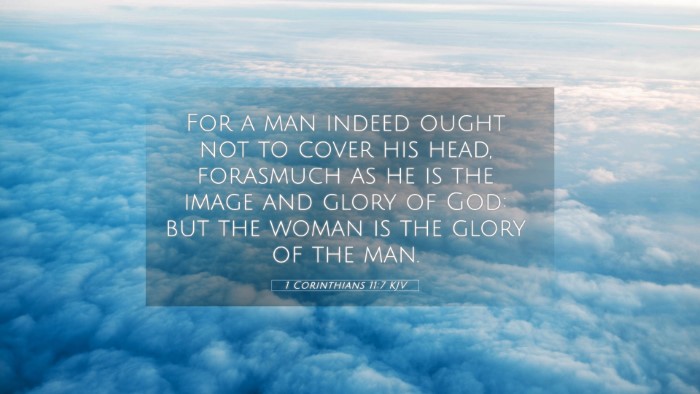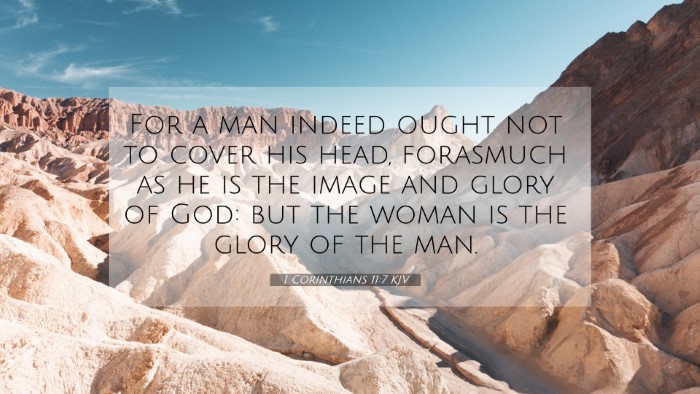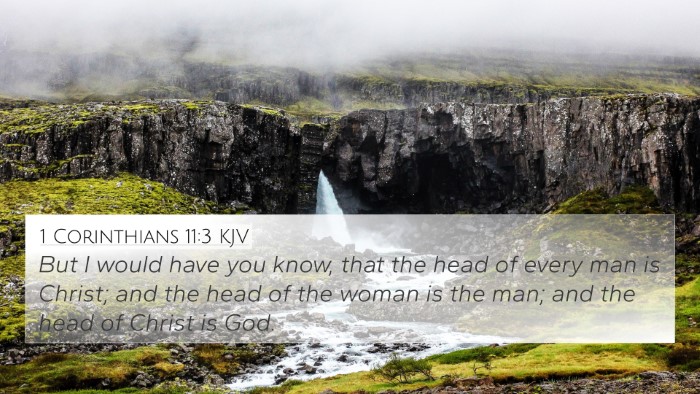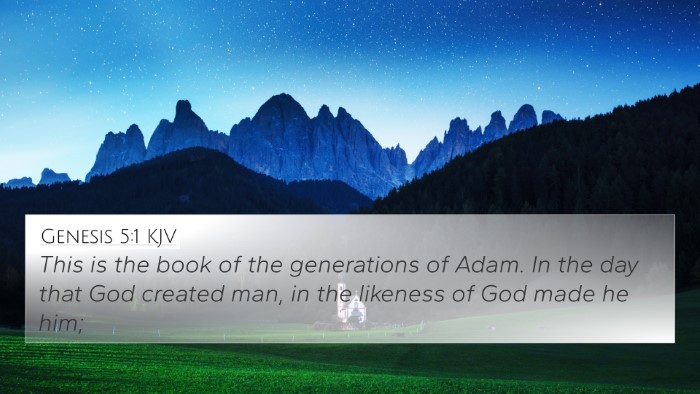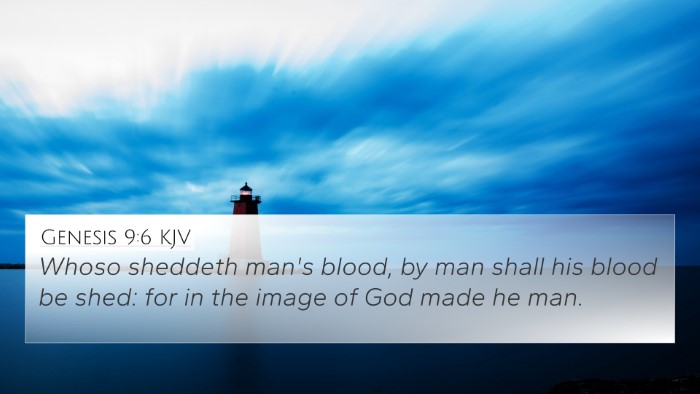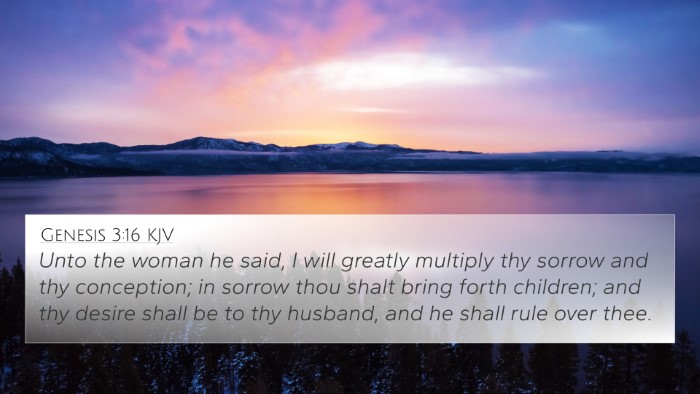Understanding 1 Corinthians 11:7
Verse Text: "For a man indeed ought not to cover his head, forasmuch as he is the image and glory of God: but the woman is the glory of the man."
This verse, from the Apostle Paul’s first letter to the Corinthians, touches upon the roles of men and women in a spiritual context, emphasizing the divine order as established by God.
Verse Meaning Summary
The essence of 1 Corinthians 11:7 lies in the theological and cultural implications regarding honor, authority, and the roles of men and women. Paul addresses issues of head coverings and the proper conduct during worship, which reveals his pastoral concern for maintaining order and respect within the church.
Insights from Public Domain Commentaries
-
Matthew Henry:
Henry emphasizes that men should not cover their heads during worship as they are created in the image of God, highlighting their role as leaders and representatives. It serves to honor God while showcasing their direct relationship with Him.
-
Albert Barnes:
Barnes explains that this verse reflects the principle of hierarchies in divine creation, where man, created in the image and glory of God, holds a position of authority over women, who, in turn, reflect the man's glory. He discusses the cultural context making it essential for men to not obscure their heads.
-
Adam Clarke:
Clarke interprets this verse as an indication of the divine order in relation to gender roles. He considers the cultural customs of head covering, suggesting that the principles of propriety must not contradict the divine intentions for men and women.
Theological Themes
This passage can be examined through several theological themes, including:
- Divine Order: Hierarchy established by God in creation.
- Image of God: The significance of being created in God’s image and the responsibilities that come with it.
- Gender Roles: Understanding the distinct roles assigned to men and women within the church and family.
Cross-References to 1 Corinthians 11:7
1 Corinthians 11:7 can be cross-referenced with several other biblical texts that elaborate on these themes:
- Genesis 1:27: "So God created man in his own image, in the image of God created he him; male and female created he them."
- 1 Timothy 2:12-13: "But I suffer not a woman to teach, nor to usurp authority over the man, but to be in silence. For Adam was first formed, then Eve."
- Ephesians 5:23: "For the husband is the head of the wife, even as Christ is the head of the church: and he is the savior of the body."
- Colossians 3:18: "Wives, submit yourselves unto your own husbands, as it is fit in the Lord."
- 1 Peter 3:7: "Likewise, ye husbands, dwell with them according to knowledge, giving honor unto the wife, as unto the weaker vessel, and as being heirs together of the grace of life; that your prayers be not hindered."
- Genesis 2:22-23: "And the rib, which the LORD God had taken from man, made he a woman, and brought her unto the man."
- 1 Corinthians 11:3: "But I would have you know, that the head of every man is Christ; and the head of the woman is the man; and the head of Christ is God."
Connections Between Bible Verses
When conducting a comparative Bible verse analysis, it’s important to identify the thematic connections between different scriptures. These cross-referenced verses routinely highlight:
- Divine structure and authority in family and church.
- Mutual respect within gender roles.
- Understanding the glory of God in relation to man and woman.
Application for Modern Readers
This verse encourages modern believers to reflect on the original meaning of gender roles ascribed by creation while balancing contemporary cultural practices. Understanding these roles can lead to healthier relationships and worship practices within the faith community.
Tools for Bible Cross-Referencing
To explore these connections further, consider utilizing:
- Bible concordances for deeper study.
- Bible cross-reference guides for thematic insights.
- Cross-reference Bible study methodologies to connect teachings across scriptures.
- Comprehensive Bible cross-reference materials to enhance study.
Conclusion
1 Corinthians 11:7 invites readers to engage in scriptural cross-referencing, exploring the deeper layers of meaning regarding gender roles, honor to God, and connections between sacred texts. This verse and its related passages collectively contribute to a more robust understanding of biblical teachings on relationships and divine order.

